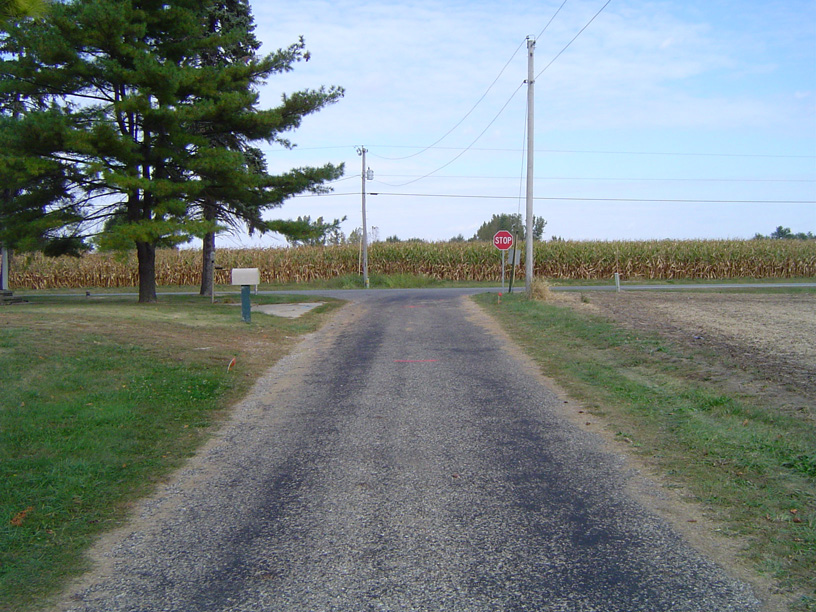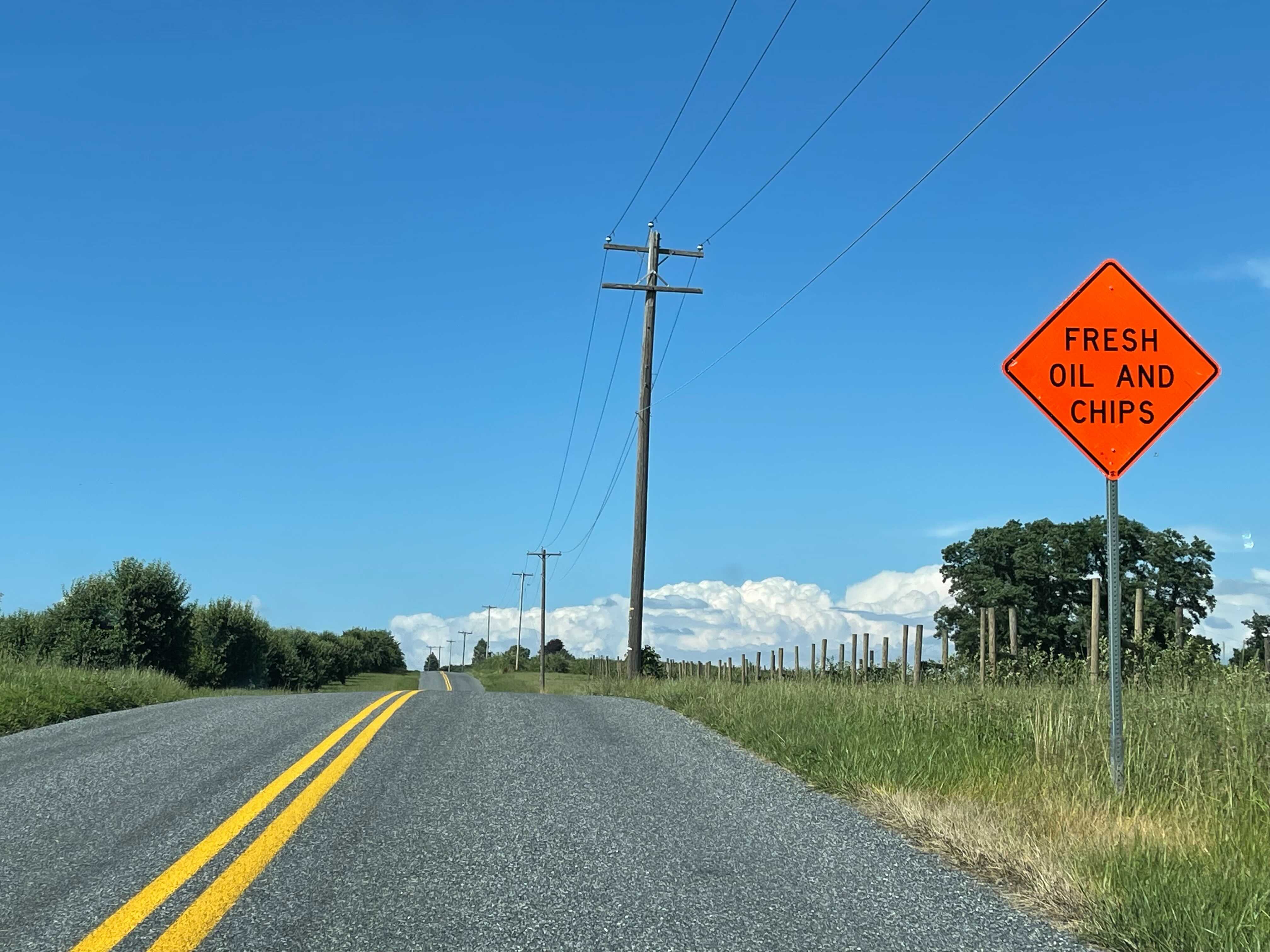Chip seal on:
[Wikipedia]
[Google]
[Amazon]
 Chipseal (also chip seal or chip and seal) is a pavement surface treatment that combines one or more layer(s) of
Chipseal (also chip seal or chip and seal) is a pavement surface treatment that combines one or more layer(s) of


City of Grand Junction, CO page on ChipsealTRL Design Guide for Surface Dressing (Road Note 39)
{{Road types Pavements Building materials Stone (material) New Zealand inventions
 Chipseal (also chip seal or chip and seal) is a pavement surface treatment that combines one or more layer(s) of
Chipseal (also chip seal or chip and seal) is a pavement surface treatment that combines one or more layer(s) of asphalt
Asphalt, also known as bitumen (, ), is a sticky, black, highly viscous liquid or semi-solid form of petroleum. It may be found in natural deposits or may be a refined product, and is classed as a pitch. Before the 20th century, the term ...
with one or more layer(s) of fine aggregate. In the United States, chipseals are typically used on rural roads carrying lower traffic volumes, and the process is often referred to as asphaltic surface treatment. This type of surface has a variety of other names including tar-seal or tarseal, tar and chip, sprayed seal or surface dressing.
In Australia as well as New Zealand, chipseal roads are common, including usage on major highways
Uses
Chipsealing is cheaper than resurfacing an asphalt concrete or aPortland cement
Portland cement is the most common type of cement in general use around the world as a basic ingredient of concrete, mortar, stucco, and non-specialty grout. It was developed from other types of hydraulic lime in England in the early 19th ...
concrete pavement, but not as long-lasting.

Installation
Chipseals are constructed by evenly distributing a thin base of hot tar, bitumen or asphalt onto an existing pavement and then embedding finely graded aggregate into it. The aggregate is evenly distributed over the hot seal spray, then rolled into the bitumen using heavy rubber tired rollers creating a paved surface. A chip-seal-surfaced pavement can optionally be sealed with a top layer, which is referred to as a fog seal or enrichment. The introduction of polymer-modified bitumen and emulsion binder has increased chipseal's ability to prevent crack reflection and improve stone retention by improving the properties of the bitumen binder. Newer techniques use asphaltemulsion
An emulsion is a mixture of two or more liquids that are normally immiscible (unmixable or unblendable) owing to liquid-liquid phase separation. Emulsions are part of a more general class of two-phase systems of matter called colloids. Altho ...
(a mixture of liquid asphalt, surfactant, and water) instead of asphalt. This has been shown to help reduce aggregate loss and reduce cost of installation, but can increase stripping (separation of the binder from the aggregate). It reduces emissions of volatile organic compound
Volatile organic compounds (VOCs) are organic compounds that have a high vapour pressure at room temperature. High vapor pressure correlates with a low boiling point, which relates to the number of the sample's molecules in the surrounding air, a ...
s (VOCs) due to the lower solvent content. New methods also utilize cross linking styrene acrylic polymers which also provide quality water resistance. Chips precoated with about one percent bitumen have been used successfully to minimize aggregate loss and to give the surface a black look.
It can keep good pavement in good condition by sealing out water, but provides no structural strength and will repair only minor cracks. While the small stones used as surface yield a relatively even surface without the edges of patches, it also results in a very rough surface that leads to louder rolling noise from automobile wheels.
Although chipseal is an effective low-cost way to repair road, it has some drawbacks. Loose crushed stone is often left on the surface, owing to underapplication of bitumen or overapplication of stone. If not removed, this can cause safety and environmental problems such as cracked windshields, chipped paint, loss-of-control crashes (especially for motorcyclists, bicyclists and small trucks), and deposition of foreign material into drainage courses. Therefore, it is very important to sweep the road after the emulsion sets. As mentioned earlier, this problem can be minimized by using chips precoated with bitumen. Overapplication of emulsion can lead to bleeding
Bleeding, hemorrhage, haemorrhage or blood loss, is blood escaping from the circulatory system from damaged blood vessels. Bleeding can occur internally, or externally either through a natural opening such as the mouth, nose, ear, urethra, vag ...
, a condition where the excess asphalt rises to the surface, creating a very smooth surface that is very slippery when wet
''Slippery When Wet'' is the third studio album by American rock band Bon Jovi. It was released on August 18, 1986, by Mercury Records in North America and Vertigo Records internationally. It was produced by Bruce Fairbairn, with recording sess ...
and bubbling in the hotter summer months. As cars drive over it the tires kick up this tarry substance on to the side of the car. It can only be cleaned off with a solvent remover or diesel fuel.

Noise and vibrational effects
The rough wearing surface of the chipseal generates more roadway noise at any operating speed than do typical asphalt or concrete surfaces. These sound intensities increase with higher vehicle speeds. There is a considerable range in acoustical intensities produced depending upon the specific tire tread design and its interaction with the roadway surface type. The rough surface causes noticeable increases in vibration and rolling resistance for bicyclists, and increased tire wear in all types of tires. Vehicle speed can affect the set up time with chipseal. Shortly after construction (depending on weather conditions) the set speed for chipseal is for the first 24–48 hours after construction.See also
* Macadam *Asphalt
Asphalt, also known as bitumen (, ), is a sticky, black, highly viscous liquid or semi-solid form of petroleum. It may be found in natural deposits or may be a refined product, and is classed as a pitch. Before the 20th century, the term ...
* Bituminous surface
References
External links
City of Grand Junction, CO page on Chipseal
{{Road types Pavements Building materials Stone (material) New Zealand inventions